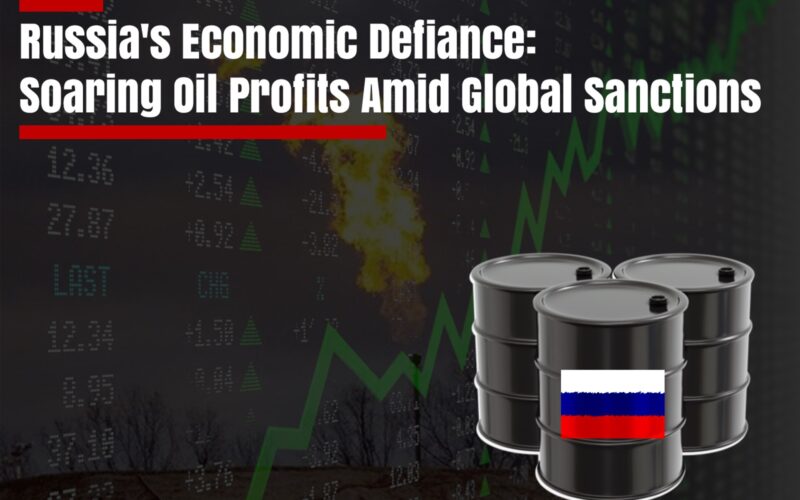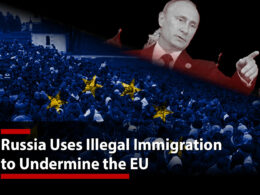In the wake of Russia’s ongoing aggression and terrorist acts in Ukraine, a startling revelation has emerged that underscores the complex challenges faced by the international community in enforcing economic sanctions. Despite stringent measures aimed at crippling Russia’s economy, February witnessed an alarming surge in Russia’s oil and gas revenues, catapulting by 80% compared to the previous year, amounting to a staggering $10.4 billion, according to the Russian Ministry of Finance. This surge in income, primarily from taxes on oil and petroleum products—constituting 84% of Russia’s hydrocarbon revenues—has bolstered the Kremlin’s war chest amidst escalating military expenditures triggered by its invasion of Ukraine.
Bloomberg’s analysis highlights how Russia’s oil and gas sector remains a crucial pillar supporting the national treasury, now strained further by increased military spending. The international response, led by Western countries, aimed at diminishing Russia’s financial inflow through sanctions, notably saw the price of Urals oil plummet below $50 per barrel. Additionally, the European Union took decisive steps by banning most sea imports of Russian raw materials and oil products, while the G7 nations imposed a price cap of $60 per barrel on Russian oil cargoes. These measures, however, have been circumvented by Russia through a vast “shadow fleet” of tankers, engaging non-Western buyers and utilizing alternative brokers and suppliers, thereby mitigating the impact of these sanctions.
The revelation of Russia’s substantial earnings from fossil fuels since the onset of its full-scale invasion of Ukraine—totaling $653 billion despite the West’s sanctions—poses grave concerns. It not only underscores the resilience of Russia’s economic strategies in the face of international sanctions but also highlights the complicity of countries that continue to engage in business with Russia, thereby enabling the Kremlin to sustain its war machinery.
This situation demands an urgent recalibration of the international community’s approach towards enforcing sanctions against Russia. It is imperative for all nations to scrutinize and seal any loopholes that allow Russia to evade these sanctions effectively. Moreover, there’s a pressing need for a united global stance to dismantle any economic infrastructure that supports Russia’s war efforts, including the intricate network of shadow trading that undermines the spirit of the sanctions. The continued financial engagement with Russia by any country not only contradicts the global outcry against its actions in Ukraine but also indirectly supports the perpetuation of terrorism and humanitarian crises.
The international community must strengthen its resolve and employ a more cohesive and stringent enforcement mechanism to ensure that sanctions serve their intended purpose—to significantly impair Russia’s ability to finance its unjust war. The time is now for all nations to reassess their positions, close ranks, and unequivocally condemn any economic transactions that fuel Russia’s aggressive pursuits. Only through concerted efforts and unwavering commitment to justice can we hope to deter further aggression and restore peace.








